#Dante's Inferno
Text
something ive noticed while reading dantes inferno is that there seems to be a lot of italians in hell
15K notes
·
View notes
Text
Unreal Unearth - Song/Circle Correspondences.
Descent: De Selby (Part 1); De Selby (Part 2)
First (Limbo, the unbaptised but virtuous): First Time
Second (Lust): Francesca; I, Carrion (Icarian)
Third (Gluttony): Eat Your Young
Fourth (Avarice and Prodigality): Damage Gets Done
Fifth (Wrath and Sullenness): Who We Are
Sixth (Heresy): Son Of Nyx; All Things End
Seventh (Violence): To Someone From A Warm Climate (Uiscefhuaraithe); Butchered Tongue
Eighth (Fraud): Anything But; Abstract (Psychopomp)
Ninth (Treachery): Unknown / Nth
Ascent: First Light
#unreal unearth#hozier#dante's inferno#for those who dont have access to a hard copy blurb#and also for me bc I never remember the circles#posts by fig
5K notes
·
View notes
Text





Dante's Inferno (1911) Directed by Francesco Bertolini, Adolfo Padovan & Giuseppe De Liguoro
#Dante's Inferno#tw: 'death'#flashing gif#tw: horror#horrorgifs#filmgifs#userraffa#userdavid#userhallie#classicfilmblr#fyeahmovies#classichorrorblog#horrorfilmgifs#italy#1910s#filmedit#worldcinemaedit#ours#by natty
1K notes
·
View notes
Text
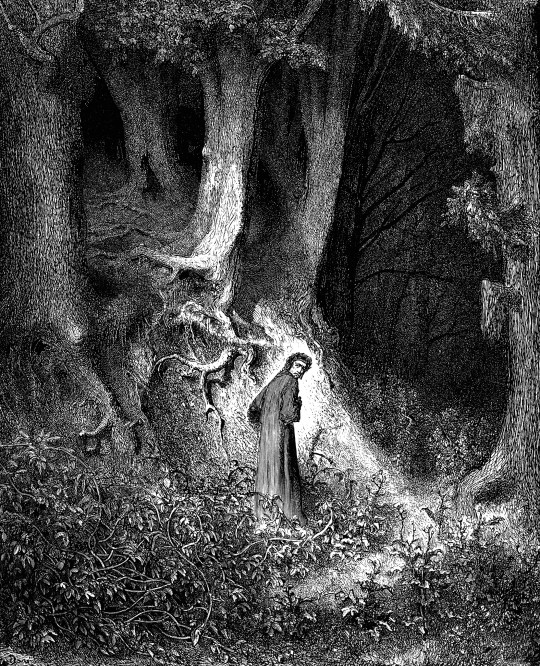
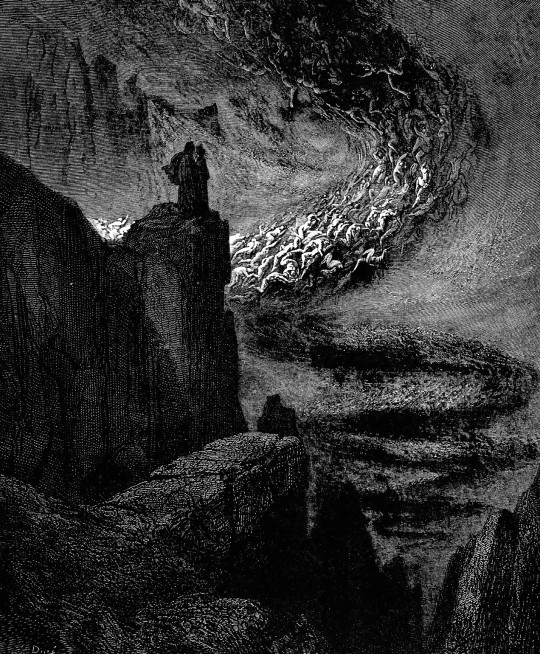

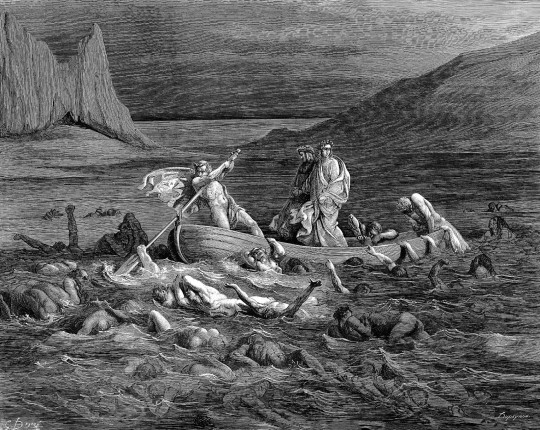
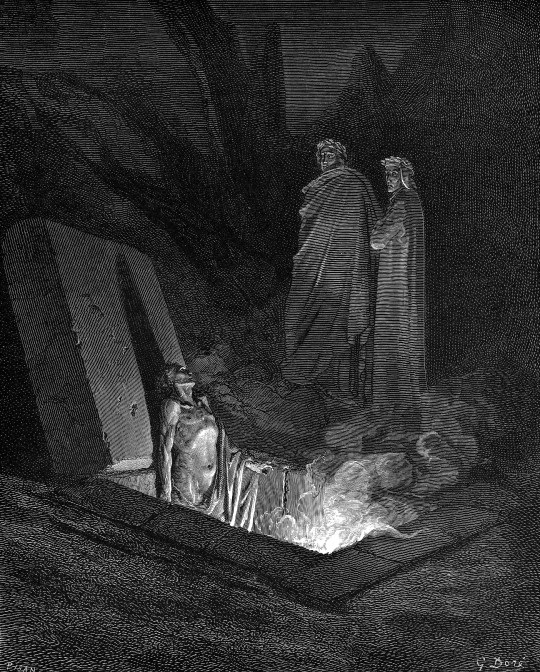
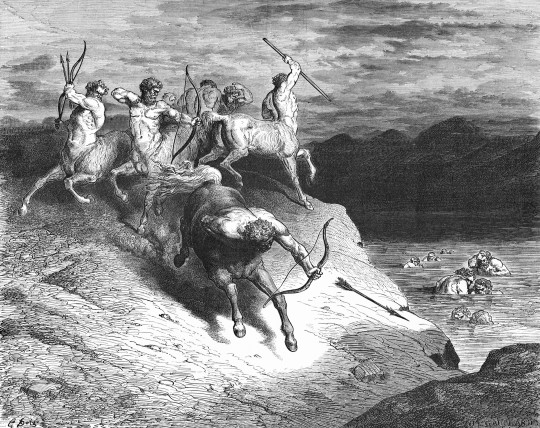

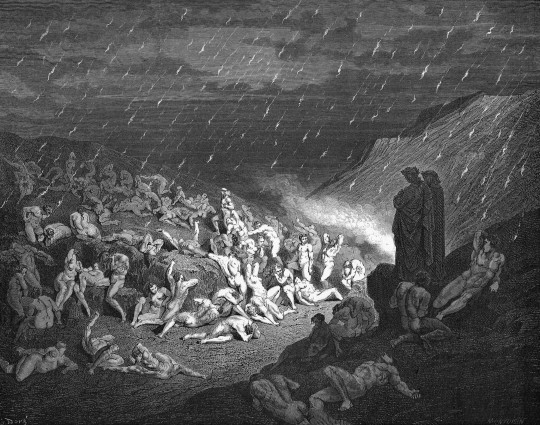

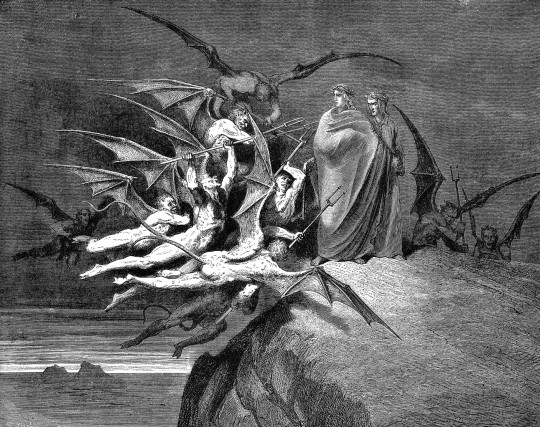

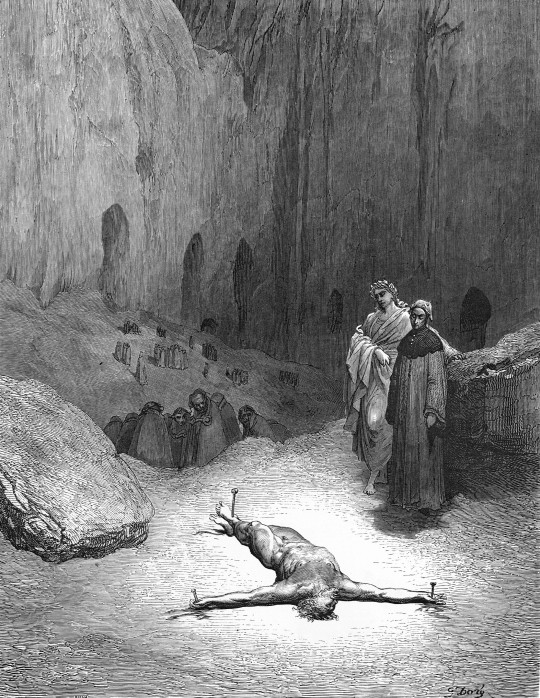
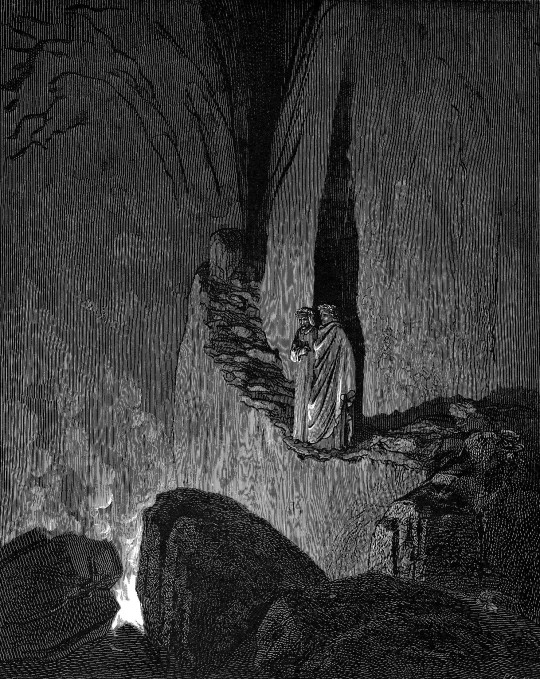
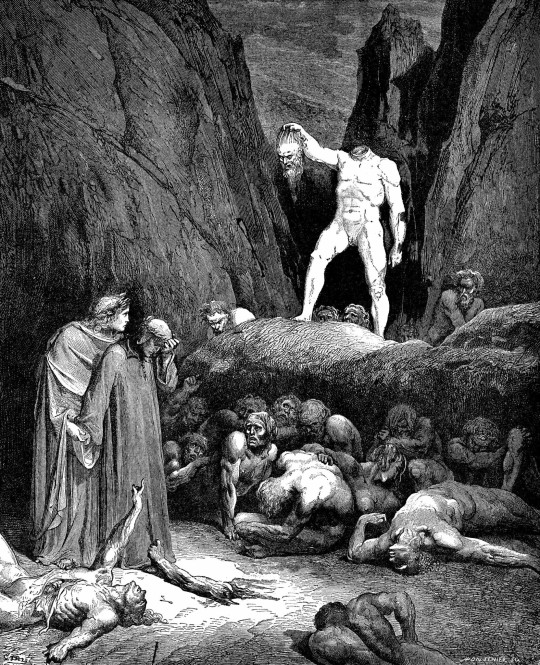
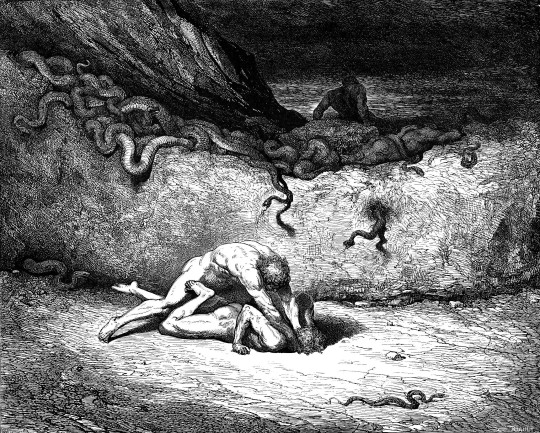


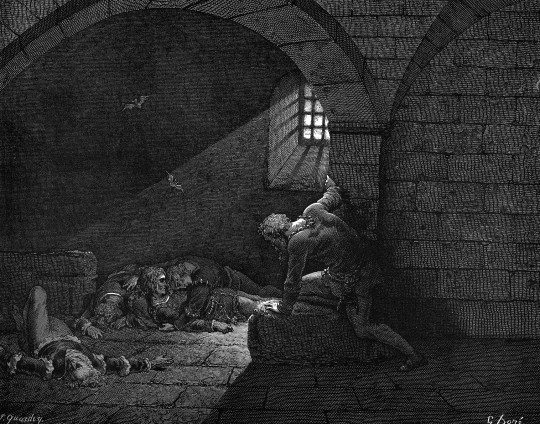
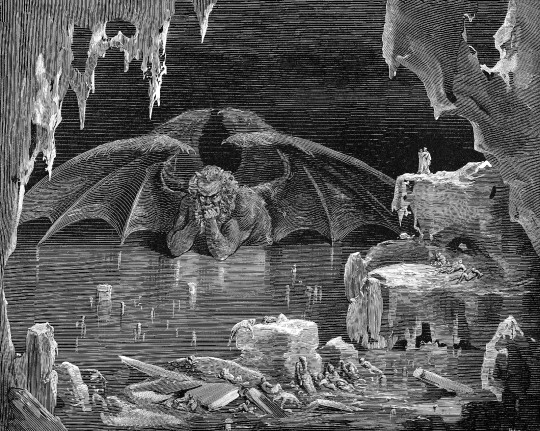
Dante's Inferno - art by Gustave Doré (1861)
#gustave doré#gustave dore#dante's inferno#divine comedy#19th century illustrations#fantasy art#horror art#wood engraving#dante alighieri#epic poem#nine circles of hell#cerberus#river styx#centaurs#harpies#devils#giants#lucifer#1860s#1861
800 notes
·
View notes
Text
y'all remember when dante wrote a fanfiction of the bible and then hozier wrote a fanfiction of said fanfiction?? iconic if you ask me
#but like#i love that dante's fandom is still alive after all those CENTURIES#we had it so tough smh#good thing hozier's here to provide some new content#hozier#the hoziest#andrew hozier byrne#unreal unearth#francesca hozier#hozier album#wasteland baby#eat your young#eat your young ep#dante#dante alighieri#dante's inferno#inferno#divine comedy#dante's divine comedy#iconic behavior#gaslight gatekeep girlboss#dark academia#chaotic academia#academia#classic academia#fanfic#fanfiction#renaissance#books#poetry
977 notes
·
View notes
Text
The Ultimate List of Dante References in Hozier's "Unreal Unearth" !!
Hello and welcome to my new-and-updated ultimate compilation of all 'Inferno' references I found in Hozier's new album! If I think of anything else, or if anyone else suggests something, I will be sure to add it, but, for now, enjoy this ridiculously long (you've been warned) list I made!
Since I didn't wanna make a post for every individual song and spam you all, the songs are separated by their respective circles! I hope that organises stuff a bit more :]
Usual disclaimer: I could be wrong about some stuff! I've read 'Inferno' and try to stick to the objective references, but sometimes I let subjective interpretation bleed through. If anyone has any corrections for anything, just lmk!! Okay, cool <3
DESCENT:
"De Selby (Part 1)"
We start the album not in the circles, but instead at the Gates of Hell. One of the main themes of Inferno is darkness, and these first two songs are embodiments of that.
The lyrics mention the idea of this being a "new empty space", suggesting that Hozier is being introduced to the feeling of Inferno through the relationship he's singing about, and, so, we begin the descent.
"The likes of a darkness so deep that God at the start couldn't bear." God is obviously a large theme of Inferno and is, biblically, the creator of light, hence the absence of it in Inferno. In fact, the first three stanzas all reference the heavy darkness of the threshold and its estrangement from God.
The Irish/Gaeilge lyrics roughly translate to: "Although you're bright and light, you arrive to me like night fall. You and I, together. You and I, metamorphized. Although you're bright and light, you arrive to me like night fall. The art of transformation is a dark art." The imagery of light and dark mixing together mimics the idea of walking from the brightness of Earth into the darkness of Inferno.
This entire album appears to be the recounting of a relationship and how it feels like walking through Inferno. Here we see the beginning of this relationship, of Hozier losing himself to the threshold.
"De Selby (Part 2)"
Part one appeared to be the step through the gates, whereas part two seems to be Hozier being enveloped by the threshold. In 'Inferno', Dante says the entrance to Hell is a darkness that no stars could shine in. We hear this shift from Earth to Unearth through the production alone; the weightlessness of part one falling into the heavy grunge of part two.
"Your heart, love, has such darkness, I feel it in the corners of the room." The theme of dark continues, as it will through the entire album, but, this time, Hozier feels it radiating from within his lover rather than the space around them. Though, him saying his lover carries darkness is not an insult. This extra depth to his lover is something more to know, something more to love. This idea actually differs from Dante, who sees the darkness as deceitful.
"I want to be so far from sight and mind." Inferno is a lawless place. He would be far from sight due to the darkness, and far from mind due to the insanity that persists within the circles.
"Let all time slow, let all light go." This lyric shows me that he has been submerged in the threshold. Again, the lack of light, but also the slowing of time. Punishment after death is eternal, something that time has no grasp on. Hozier is willing to let these aspects take a hold of him.
"I'd still know you not being shown you, I'd only need the workin' of my hands." Christianity is a heavy theme of Inferno, and this lyric plays on the proverb 'Idle hands are the devil's workshop', a proverb Hozier also hinted at in his song "No Plan" (from 'Wasteland, Baby!') - "My heart is thrilled by the still of your hand."
Now, though, Hozier's hands aren't idle, instead the opposite, his hands are working as God intended. Drawing us back to that idea we were given at the end of part one, we get the feeling that Hozier is bringing something light/Godly to Inferno, and he and his lover are fusing the ideas of Heaven/Earth and Hell.
FIRST (LIMBO):
"First Time"
We now enter circle number one, 'Limbo'. Limbo is an uneventful circle for those not worthy of punishment but also not fit for Heaven. It is mainly for those who do not believe in God, the unbaptised.
Firstly, to get to circles, Dante and his guide, Virgil, must be chaperoned by the Greek Psychopomp Charon down the river Acheron, and we see that in Hozier's first couple stanzas.
"And the soul - if that's what you'd call it, uneasy ally of the body - felt nameless as a river, undiscovered underground." This appears to be Hozier mentioning the river Acheron, one of the five rivers of the Underworld that surround Hades, and, in 'Inferno', are used to transport the souls of the dead to their respective circles.
"The first time that you kissed me, I drank dry the river Lethe." The river Lethe is another one of the five rivers, and is one that causes anyone who drinks from it to forget everything they know. Hozier is simply saying that kissing this person wiped his mind clean, similar to the end of "De Selby (Part 1)" where he mentions partaking in a transformation.
"Some part of me died / Some part of me came alive the first time that you called me 'Baby'." Relating to the previous quote, souls that drink from the river Lethe usually do so before being reincarnated, so they forget their past life. Hozier seems to experiment with the idea of being reborn by his partner's love for him - an idea prevalent throughout his entire discography.
"To share the space with simple living things, infinitely suffering, but fighting off - like all creation - the absence of itself." This lyric tells us that we should not ignore the privilege of living just out of the fear of dying. This lyric is reminiscent of "All Things End" and the circle of Heresy. Since Limbo is home to those who don't believe in God, the theme of Heresy is a very fitting one.
SECOND (LUST):
"When I was young, I used to guess 'Are there limits to any emptiness?'" The punishment for those in Limbo is to exist eternally with the curse of a hollow, empty feeling meant to represent the lack of God in their lives. This punishment seems referenced in this lyric.
[ i ended up thinking about this song more so if you want even more "first time" content, here ya go: "first time dante references." ]
"Francesca"
Into circle number two, 'Lust', we have the story of Francesca Da Rimini, a woman Dante spoke to during his visit to circle two. Francesca fell in love with her husband's brother, Paolo, and when her husband discovered the affair he murdered them both.
Hozier seems to be singing from the perspective of Francesca/Paolo but throughout the album we see Hozier liken his lover to aspects of Inferno - darkness in "De Selby (Part 2)" or Lucifer in "Unknown / Nth" - so the story of Francesca and Paolo is fitting as another metaphor here.
"Do you think I'd give up? That this might've shook the love from me?" Even in Hell, Paolo and Francesca physically cling onto another. They do not let their death affect their love.
"My life was a storm since I was born. How could I fear any hurricane?" The punishment in Lust is an eternal storm meant to replicate the throws of passionate love - a storm also depicted in the production of the end of this song. Hozier/Francesca/Paolo says that it's impossible for them to care about this punishment when life was already as treacherous as it was.
The whole chorus emphasises the imagery of Francesca and Paolo not being able to let go of each other.
"When the heart would cease, ours never knew peace. What good what it be on the far side of things?" Francesca and Paolo lived their love secretly and anxiously, so what good would peace be in the afterlife when they've already become accustomed to difficulty?
"Heaven is not fit to house a love like you and I." In the opening songs of the album, Hozier describes his lover as darkness, akin to something God cannot bear. Due to the depth of his lover, the mix of light and dark they've made, he believes Heaven would crumble beneath the weight of their relationship. That something as corrupt as Inferno is the only place suitable for them to live.
"I, Carrion (Icarian)"
Still in circle two, Hozier plays on Dante's own metaphor. In Canto 17, Dante refers to his own dread of descending Inferno to the same dread that the 'ill-fated Icarus' must've felt on his fall from the sky.
Hozier twists this, instead comparing his love to the hope Icarus must've felt as he flew towards the sun. He said, during a live show, this song is based on the idea hat Icarus never realised he fell, and woke up dead, too clouded by joy to realise what had happened.
"If the wind turns, if i hit a squall, allow the ground to find its brutal way to me." Again, we mention the storm of circle two. Lust is also said to have treacherous terrain - sharp rocks and jagged stone - that seems to be hinted at in the second half of this lyric.
"While you're as heavy as the world that you hold your hands beneath." This imagery seems reminiscent of the Greek Titan, Atlas, who holds up the Earth on his back. Dante talks about seeing Titans and Biblical Giants at the transition point of circle eight to circle nine, 'Fraud' to 'Treachery', which makes this lyric a sad hint to where Hozier will end up finding his lover; Taking the place of Lucifer in the deepest part of Inferno.
THIRD (GLUTTONY):
"Eat Your Young"
We enter the third circle of Inferno, 'Gluttony'. There are no specific references to Inferno, but the concept of gluttony is apparent. Hozier does what he frequently does throughout this album; He refuses to see the sin as "right or wrong" as Dante so stubbornly implies.
Hozier often divulges in a grey area, a spectrum or sale of severity, when it comes to the sin. Hozier's perspective seems more nuanced than Dante's, seeing sin as layered rather than objectively bad. In this specific song, he displays the different sources of hunger in humans, and where the line should be drawn.
"I'm starvin', darlin', let me put my lips to something, let me wrap my teeth around the world." We start, and reference back to in verse two, a sexual hunger, a harmless passion between two people. This is an innocent side of the sin, not deserving of the punishment of Lust which is to be ripped apart by Cerberus (the three-headed dog from Greek mythology) for all eternity.
However, Hozier moves onto the hunger of politics.
"Pull up the ladder when the flood comes." The government refusing to help the people when the sea levels rise.
"Throw enough rope until the legs have swung." When you don't have a ladder, you use a rope. This lyric plays on the notion of when governments give the impression they are helping, but are only making things worse - a take on the saying 'Give someone enough rope and they'll hang themselves', since what else are they meant to do with it?
"Skinnin' the children for a war drum, puttin' food on the table selling bombs and guns." The hunger for power manifests in war.
"It's quicker and easier to eat your young." Here, Hozier uses the common saying in a more literal sense, saying that if these politicians are hungry enough to destroy the world, they may as well physically eat their young, since it'll have the same effect.
FOURTH (GREED):
"Damage Gets Done"
This song takes place in circle four, 'Greed'! The title of the song alone is already very meaningful. In circle four, the main punishment is that the inhabitants are split into two groups and are forever forced to charged into each other and fight. Dante describes them are being so injured and damaged that they have become 'unrecognisable'.
The song is about greed within the changing of the world. It's about growing up and losing the naivety and innocence you once had, no longer able to ignore the burden of politics and money. Hozier and Brandi sing about the excitement of being young and in love, but, with the rise of inflation, it's hard to exist like that anymore - You need greed to survive.
"Wish I had known it was just our turn being blamed for a world we had no power in." This seems to be a reference to two things. One, the idea that governments blame the people for their own poverty, and Two, the idea of arriving in circle four by no fault of your own. It's not their fault they wanted more money with the world being how it is, but, nevertheless, they're being punished for it.
"I haven't felt it since then. I don't know when the feeling ended, but I know being reckless and young is not how the damage gets done." They talk about the enjoyment of the love they're singing about fading, and how they miss that, but they know that, again, this is not their fault. They know they didn't change, the world did, and they won't take responsibility for their 'sin' when all they did was adapt.
As aforementioned, the inhabitants of the fourth circle suffer extreme injuries, so Hozier saying "I know being reckless and young is not how the damage gets done" is him saying "I know that we are not at fault for being served the punishment of Greed."
FIFTH (WRATH / ANGER):
"Who We Are"
We enter the fifth circle, 'Wrath', where the inhabitants spend their time fighting to stay at the surface of the river Styx, another one of the five rivers of the underworld.
"Falling from you drop by drop." / "To hold me like water." These lyrics obviously give the idea of water, representing the river Styx.
"Or, Christ, hold me like a knife." This lyric comes in quite loudly, Hozier's voice strengthening with it. The subtle blasphemy of "Christ" and the violent imagery of "knife" comes across as a sort of anger. Being held "like a knife" is representative of how those is Wrath must feel - like they are something particularly dangerous, but still desperate to be held.
"We're born at night, so much of our lives is just carving through the dark to get so far." Again, this theme of darkness that is so frequently displayed in Inferno is mentioned again. After this song comes "Son Of Nyx", which Hozier said was the transition into the darker half of the album, and Nyx is the Goddess of the Night. Being "born at night" would make Hozier the son of the night, the son of Nyx. This gives the impression that, if the album is following on chronologically, this is the point where the relationship portrayed in the album begins to fray as Hozier starts to be consumed by the darkness.
"And the hardest part is who we are." Those in the circle of Wrath possess a 'savage self-frustration' that Hozier seems to represent throughout this whole song - A fierce annoyance with the way he and his lover let things go: "We sacrificed, we gave our time to something undefined", "Chasing someone else's dream", Etc.
SIXTH (HERESY):
"Son Of Nyx"
We have no lyrics for this song (though you can hear him faintly saying some things, one of which is him saying "who we are...") but we know it takes place in circle six, 'Heresy'. Heresy is a belief or opinion that is contradictory to religious doctrine, especially Christianity. As aforementioned, Hozier said this track is a transition song meant to replicate a descent into the darker half of the album.
Nyx is a Greek Goddess and is often known as the personification of night. She had many children all representing different things but the title would essentially mean 'The Son Of Night', and, as dissected in the previous song, we can see that Hozier sees himself as reborn into the darkness.
Once again, darkness is a large theme of Inferno, but Hozier saying in circle six that he is the Son of Night is particularly meaningful due to the association of light with God. He has been reborn as something that could not be further from God, something that opposes the idea of God, something of a Heretic.
Nyx was feared and respected by all, including Zeus, and, though I believe there is no reference to her in Inferno, she was described as residing in the dark recesses of the Underworld, which is heavily incorporated into Inferno.
"All Things End"
This song does not have many overt references to circle six but definitely incorporates the idea of heresy. As mentioned, heresy is an idea that contradicts (especially, but not always) Christianity. In this song, Hozier talks about the ephemeral nature of all things, particularly romance.
"When people say that something is forever, either way it ends." Whether it be death or a break-up, God doesn't plan for you to be able to spend eternity with your lover.
"Movin' on in time and taking more from everything that ends." Hozier, however, argues that things still have meaning beyond their end. That, even after moving on, we will remember and learn from the things we have lost.
"Just knowin' that everything will end should not change our plans." Throws back to the idea of the second verse of "First Time". If you avoided something just because it was going to end eventually, you would never achieve anything. That's like refusing to finish a movie just because you don't want to get to the credits.
When this concept of ignoring the end comes to death, we ultimately cross the concept of God. There are many rules people follow in religion, avoiding certain things because they are against 'God's Will'. Although this practice can be kept in moderation, it can quickly become self-imprisoning.
Not living your present life out of fear for an unproven afterlife can be limiting, especially if you dictate who you love due to what supernatural punishment may or may not follow. Hozier sings that we should not let God's plan interfere with what we need from life, allowing ourselves to indulge in love even if it will end - ultimately, Heresy.
SEVENTH (VIOLENCE):
"To Someone From A Warm Climate (Uiscefhuaraithe)"
This song places in circle seven, 'Violence'. Violence is split into three subcategories, or 'rings'; Violence against others, violence against self, and violence against God. I believe this song gives an overview of all three.
With this song, we recognise that the title says "To someone..." and Hozier said this song was a gift to someone who was from a geographical warm climate, but there is also a lot of heat in circle seven.
"A joy, hard learned in winter, was the warming of the bed." Throughout this song, Hozier describes himself as cold, and his lover as warm. The idea of warming the bed is a concept Hozier mentioned in his song "Nobody" (From 'Wasteland, Baby!') where he sings that, if he had a choice between the warm bed of his lover or performing on stage, he'd go home to the bed. Since this song comes after "All Things End" (the break-up song), this call back to "Nobody" could be instead referencing a permanent distance, rather than a temporary one (like the temporary distance in "Nobody").
"And, darlin', all my dreaming has only been put to shame." This could have two meanings. One, Hozier waking from a dream about his lover to find them not here. Or, two, Hozier's expectations of his lover falling short as their relationship has finally fallen through. These expectations could be a form of violence against self, the second ring, as he set himself up for heartbreak.
"And I wish that I could say that the river of my arms have found the ocean. I wish I could say the cold lake water of my heart- Christ, it's boilin' over." As mentioned, Hozier is cold, his lover is warm. His wishes he could find something to to fill the loss of his relationship, but he still feels the heat from his lover in every part of him.
"It's boilin' over." References the river of boiling blood in the first ring, violence against others, Hozier could be talking about the way his partner loved him, how that was almost an act of violence with how hard it is to now let go.
"Butchered Tongue"
This song has less references to 'Inferno', and is more of a commentary on the act of violence itself. Hozier sings of places and cultures lost to the violence of man, and he mourns this deeply.
"To say 'Appalacicola' or 'Hushpukena', like 'Gweebara'. A promise softly sung of somewhere else." This grieving for a time when native land wasn't colonised and culture wasn't violently erased is prevalent throughout the song.
In the second verse, he sings very strongly of the brutal acts inflicted upon Irish rebels by the British forces in the Wexford Rebellion of 1789. As we know, Hozier is from Ireland, and he incorporates both the Irish language and history into this album, and recounting such violent acts for this song feeds into the grieving of what has been lost: "Between what is lost forever and what can still be known."
In the context of 'Inferno', it feels as though Hozier is listing the sort of actions that would land someone within the circle of Violence whilst also appreciating the efforts those above ground take to preserve erased culture. Altogether, the song is a very moving commentary on modern violence.
EIGHTH (FRAUD):
"Anything But"
The eighth circle is 'Fraud', split into ten subcategories that are positioned around the circle in trench-like ditches, known as 'Bolgia'.
"I wanna be loud, so loud, I'm talking seismic," follows up with, "I want to be as soft as a single rock in a rain stick." Who he wants to be fluctuates between moderation and severity. He is changing, unreliable, possibly referring to bolgia one, Panders and Seducers. Seducers tend to 'lead astray', as Hozier's unreliable narration does.
The punishment of bolgia one is to be marched backwards and forwards rapidly whilst being whipped, very much evoking the imagery of a stampede: "If I were a stampede, you wouldn't get a kick." This alludes to the fact that if Hozier were sent to hell for the various sins he commits for his lover, he wouldn't resent them for it at all.
"If I was a riptide, I wouldn't take you out." The second bolgia of Fraud is for Flatterers, 'the act of giving excessive compliments, sometimes for romantic courtship'. Obviously, the song is filled with these compliments.
"I hear He touches your hand and then you fly away together. If I had his job, you'd live forever." The imagery of "fly away" gives the idea of ascending, perhaps to Heaven, as hinted at again by the idea of the longevity of living. Bolgia three is for Simoniacs, those who would sell church roles, offices, or sacred things. This seems to fit with Hozier saying that if he had a divine role, he wouldn't follow protocol, he would allow his lover immortality.
Simoniacs were sinners because they were disobeying God's trust, because the selling of divine roles would lead to corruption in the Church. Hozier is using this hyperbolically, saying that if someone were to sell him the role of God, he would most definitely be a corrupt power.
"I'd lower the world in a flood, or better yet I'd cause a drought." In bolgia four we have Sorcerers. Although Dante used this term in a more logical sense for fraudulent sorcerers - false prophets, fortune tellers, those who lied about the plans of God - Hozier uses the term in a supernatural sense. Sorcerers were punished for trying to interrupt God's prerogative, whereas Hozier is blatantly saying he would summon another flood, usurping God's plan overtly.
"I'm talking seismic." The bridge that leads to bolgia seven was collapsed by the great earthquake and, as we know, seismic activity leads to earthquakes.
"Worry the cliff side top as a wave crashing over." There happens to be a cliff near the entrance of circle eight that a large waterfall plunges over.
"Abstract (Psychopomp)"
This song appears to be the crossover point from circle eight to circle nine that I mentioned when discussing "I, Carrion (Icarian)". Before we get to that, the title itself is significant.
A psychopomp is a chaperon of death; Someone like the Grim Reaper, or Charon from "First Time", or Dante's guide through Inferno, Virgil. Here, Hozier is describing the act of hitting an animal with your car as taking on the role of a psychopomp, whilst also relating this idea to the act of letting a relationship die, leading it from life to death.
In the crossover point from eight to nine, Dante and Virgil stand and look at the large well that leads down to circle nine, 'Treachery'. The Titians and Giants burst out of the well, to big to fit, but their feet stand stubbornly in Treachery. I believe that, at this point in the album, Hozier stands here, too. He's visited all eight circles, and has one last place to go before he leaves Inferno, and ultimately his lover, behind. This song is him realising he has to let his relationship end, he has to act as a psychopomp for his love.
"Sometimes it returns like rain that you've slept through." Circle nine, 'Treachery', is a frozen over lake, aka a memory of water, similar to the residue of rain. With viewing this song as the predecessor to "Unknown / Nth", we can take this as a hint of what's to come.
"The Earth from a distance." Since Inferno is arranged in rings (like a circular staircase), Dante could feasibly look up and still see where he started his journey. The same way Hozier could look up and see where his relationship began, "De Selby (Part 1)", The Gates.
"Streetlights in the dark blue." We have the mix of light and dark again, as mentioned in the opening track, referencing back to Hozier and his partner falling in love.
"Darling, there's a part of me I'm afraid will always be trapped within an abstract of my life." Of course, Hozier is talking about the memory of the animal hit with the car here, but the way this relates to circle nine is beautiful. As we'll properly dissect with "Unknown / Nth", sat within the most central point of circle nine, the deepest part of Inferno, is Lucifer, the fallen angel. Lucifer was thrown down to Hell from Heaven, and found himself trapped in Treachery, his body too big to escape. Dante says that the more he struggles, the more stuck he becomes.
That moment he was struck down to hell is a moment he finds himself forever stuck in, just as Hozier is saying here. In the next song, Hozier relates his lover to Lucifer, but these lyrics are a gorgeous mirroring of Lucifer's experience, and another hint at the final circle we will now head to.
NINTH (TREACHERY):
"Unknown / Nth"
Okay, buckle in.
The ninth circle, 'Treachery', is also one split into subcategories, yet Hozier appears to be singing about the centre. The frozen over lake of Treachery gets more frozen the closer you get to the centre. The inhabitants start half-submerged in ice to fully plastered in it. Throughout Inferno, and the deeper we descend, a soft breeze becomes a strong wind, that, as we reach the centre, we find is caused by the violent flapping of Lucifer's wings. Here he sits, stuck and chewing on Judas, another one of God's biggest betrayers.
After "Abstract (Psychopomp)" Hozier is now exploring the final stage of his relationship. The circles of Hell had mirrored the love he once had, and Treachery is where it shall be buried. He also represents his lover as Lucifer, though not maliciously. In interviews, Hozier spoke about the song being about a heavy betrayal he suffered from someone he truly loved, and likening this to God and Lucifer is just heartbreaking.
"You know the distance never made a difference to me." The song is about knowing someone in their entirety, discovering their best and worst parts. Hozier uses Inferno to talk about the tiresome journey of finally knowing someone. He says he would've made the trip all the same, that he would've walked this far for his lover no matter what.
"I swam a lake of fire, I'd have walked across the floor of any sea." This mirrors the previous lyric, but also references specific parts of Inferno. The are many fires in Inferno, particularly in circle seven, 'Violence'. The sea floor lyric reminds me of the lake of Treachery. Though a surface, not a floor, the lake would still be below any seabed, since Inferno is geographically below the Earth.
"Funny how true colours shine in darkness and in secrecy." You guys are probably sick of hearing me say it but... Darkness is a big theme in Dante's Inferno. It is meant to represent the deceiving nature of humans when light is not being shone. Secrecy is a running thread through 'Inferno', too, as Dante finds many people he thought had done no wrong residing there. Hozier is simply saying how (sarcastically) funny it is that he only truly knows his lover in the remains of their relationship; How he only knows them after seeing them in their cruellest form.
"Where you were held frozen like an angel to me." There are many angel lyrics, but this one specifically references the ice of Treachery. The fallen angel is indicative of Hozier's experience: Seeing someone he regarded highly, even heavenly, falling from that pedestal and turning into something that couldn't be further from God's work.
"You called me angel for the first time, my heart leapt from me. You smile, now, I can see its pieces still stuck in your teeth, and, what's left of it, I listen to it tick. Every tedious beat going unknown as any angel to me." Hozier references his ex-lover chewing on his heart the way Lucifer chews on Judas. He listens to it somehow still ticking, however slowly, and at the end of the song we hear something akin to a heartbeat. The beats are "going unknown as any angel to me" since he can no longer recognise his own heartbeat after it has been mangled by another, and, since he mistook someone alike Lucifer to an angel, the idea of angels must be "unknown" to him.
"Do you know I could break beneath the weight of the goodness, love, I still carry for you? That I'd walk so far just to take the injury of finally knowing you?" We again have this imagery of walking far, referencing the journey of Inferno, and, even though he's aching with the realisation of who his lover truly is, he can't help but be grateful that he does now know them, no matter how painful that may be. That he would do this all again if it meant he at least got to the answer of who they are.
His weak heartbeat follows him through to final track as we begin the Ascent.
ASCENT:
"First Light"
The title is very meaningful for the Ascent. The song references both Dante and Virgil's ascent and the creation of light by God himself. Dante and Virgil leave Inferno through a tunnel that Lucifer left in the Earth as he was thrown down to Hell, and they emerge on the other side of the hemisphere. This song signifies Hozier stepping away from the relationship as he also makes that journey out.
"One bright morning changes all things." Dante is disorientated when he exits Inferno. He'd become so accustomed to the darkness that he asks Virgil, 'How is it that the sun progressed so rapidly from evening to day?' Hozier seems to recognise here that his relationship is no longer fit for him, that the darkness has become too encompassing, just as Dante realises on his ascent.
"The sky set to burst, the gold and the rust, the colour erupts...the sun coming up." Not only does this give the imagery of the birth of light, but it also represents Dante's view on his exit: 'Until...I saw the lovely things the sky above us bears. Now we came out, and once more saw the stars.'
"Like I lived my whole life before the first light." Hozier says that the darkness from his lover was so overbearing that it was hard to believe he'd ever felt light before - that light could not have exists with a darkness this heavy alongside it. It is a call back to "De Selby (Part 1)" - "A darkness so deep that God at the start couldn't bear."
"One bright morning comes. Darkness always finds you either way, it creeps into the corners as the moment fades." He speaks of bringing light to a moment between them, but has it quickly smothered by the darkness inherent in his partner. Another call back, this time to "De Selby (Part 2)" - "And your heart, love, has such darkness, I feel it in the corners of the room."
"After this I'm never going to be the same, and I am never going back again." This lyric is heart-breaking. Hozier states that Inferno has changed him, but he has no wishes to re-enter it. At the beginning of this album, he was begging for the likes of Inferno - "De Selby (Part 2)": "Let all time slow, let all light go." - and now he is desperate to get away from it. In "Francesca", he said, "At the end, I'd tell them, 'Put me back in it.'", yet, now, he's at the end, he's ascended, and he has no desire to go back at all.
He is letting go of his lover because he recognises that this pain was not worth it, that this love was not worth the punishment he received, so he leaves.
---
That was Hozier's Inferno !! I hope this was helpful to some people since it was very fun to make (I'm exhausted) and it's very enlightening to see how these lyrics relate to Inferno (I'm heart-broken) !! Okay, wooooo !! Enjoy !!!
#unreal unearth#hozier#hozier's inferno#this took forever#please enjoy#this is the best album ever made#lyric analysis#dante's inferno#greek mythology#literature#music analysis#de selby part 1#de selby part 2#first time#francesca#i carrion (icarian)#eat your young#damage gets done#who we are#son of nyx#all things end#to someone from a warm climate#butchered tongue#anything but#abstract (psychopomp)#unknown / nth#first light#THE dante reference list
2K notes
·
View notes
Text
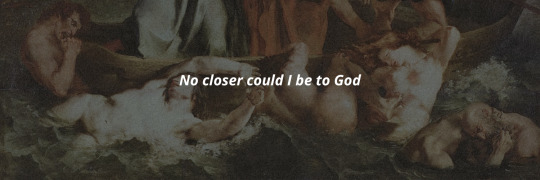
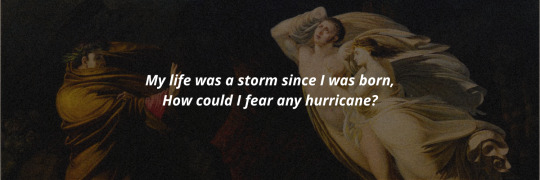
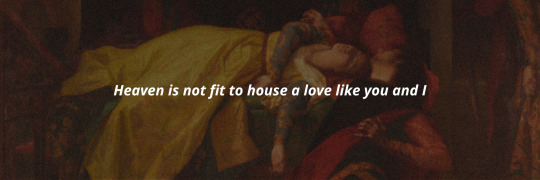
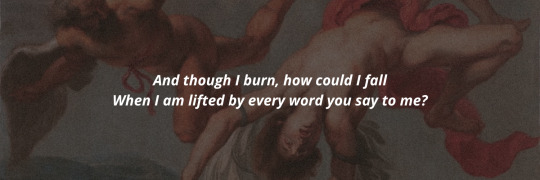

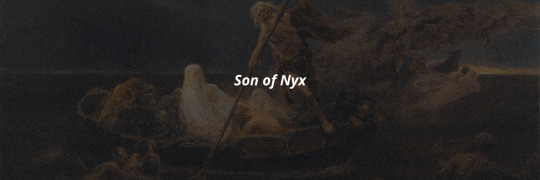

Headers inspired by Unreal Unearth by Hozier.
Do not claim as yours, use all you want.
Wasteland, Baby! (8 headers)
#hozier#unreal unearth#de selby#francesca#i carrion#i carrion (icarian)#son of nyx#first light#dante#dante's inferno#the divine comedy#header#headers#lyrics
696 notes
·
View notes
Text
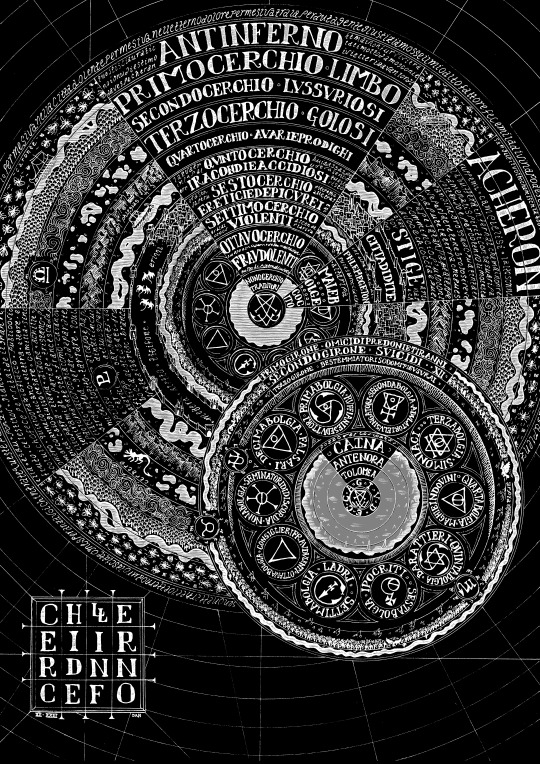

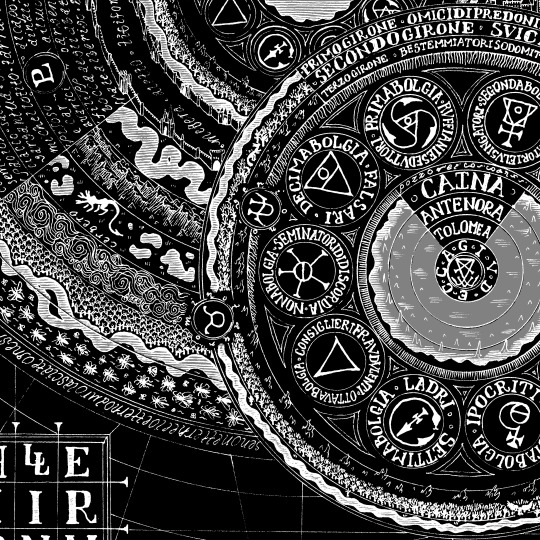
𝐃𝐀𝐍𝐓𝐄'𝐒 𝐈𝐍𝐅𝐄𝐑𝐍𝐎
#i've been waiting years to draw this like since highschool#so i'm sooo happy to finally be able to put it altogether#maybe not its final version but for now im satisfied ahah#it gathers lots of things i drew lately (3-4 years) : medieval maps / space maps / alchemy symbols and circles#also notice how there is no style consistency in my blog on my last posts ahahaha#also ive got tons of lore idea about hell and i wish i had time to illustrate them and think more about it#map#medieval#fantasy#Dante's inferno#divine comedy#hell#alchemy#circle#litterature#occult#demonology#ink#inferno#dark academia#catabasis
762 notes
·
View notes
Text

L'Inferno (1911)
#l'inferno#dante's inferno#1911#1910s movies#1910s horror#francesco bertolini#adolfo padovan#giuseppe de liguoro#horrorgif#my gif#gif
695 notes
·
View notes
Text

im here at the gate's of hell
1K notes
·
View notes
Text


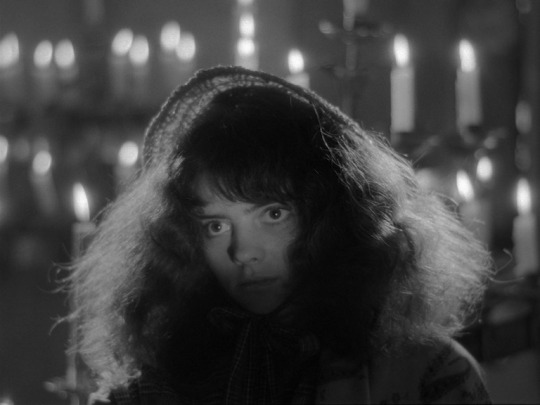
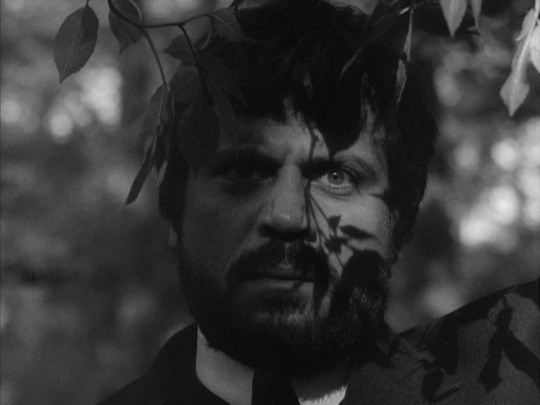
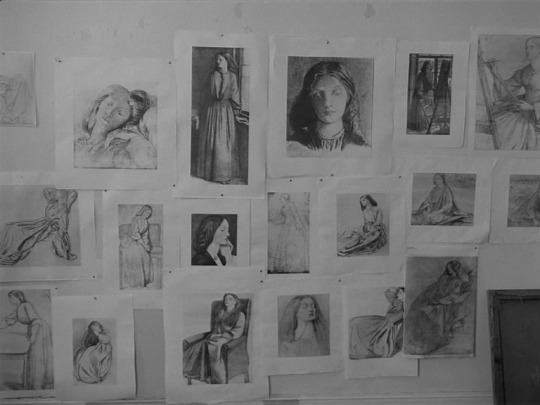

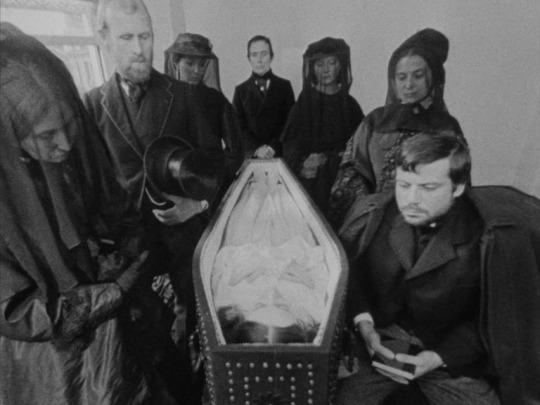

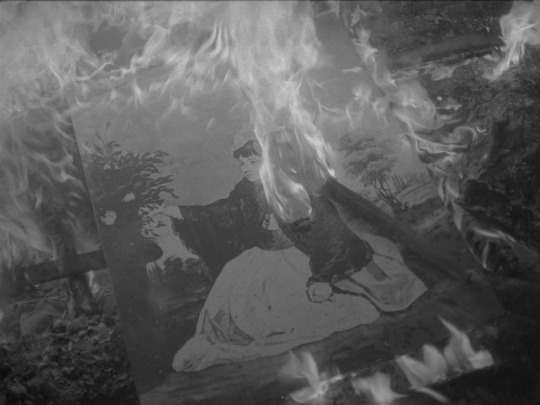
Dante's Inferno (1967, dir. Ken Russell)
#mine#ken russell#dante's inferno#dante's inferno 1967#oliver reed#pre raphaelite#pre-raphaelite brotherhood
590 notes
·
View notes
Text
The fact that there are only two or three social media platforms which are popularly referred to as "hellsites" is putting a serious crimp in my plan to assign a different social media site to each circle of Hell.
2K notes
·
View notes
Photo

Poet, I beg you by that God whom you did not know...
#divine comedy#divina commedia#dante alighieri#publius vergilius maro#my art#the divine comedy#la divina commedia#dante's inferno#classic literature
5K notes
·
View notes
Text

THE FIFTH CIRCLE OF HELL: ANGER
904 notes
·
View notes
Text
I’m thinking about how Wasteland, Baby was a call to action and a tongue-and-cheek acceptance of the end of the world. And how Eat Your Young and Unreal Unearth are about the nine circles of Hell, about the afterlife, about the consequences after death. I’m thinking about one album cover being under water and another being buried under earth, about NFWMB “ain’t it like thunder under earth the sound it makes”, about Unreal Unearth and unearthing something, un-burial, about Like Real People Do “what did you bury before those hands pulled me from the earth.”
I’m thinking Eat Your Young, about Kronos’ mythology, about hunger for and to keep power, about gluttony. I’m thinking about Swan Upon Leda, about the lust Zeus had for Leda, about the greed of man over bodies, about who is the sinner. I’m thinking about angels, about their lack of power in Swan Upon Leda “could never belong to angels”, about their fall from grace in the “Unknown” song “I thought you were like an angel/going unknown as any angel/you called me angel.”
I’m thinking about Hozier.
#hozier#hozier album#wasteland baby#wasteland baby album#eat your young#eat your young ep#unreal unearth#unreal unearth album#hozier nfwmb#like real people do#swan upon leda#unknown song#hozier's unknown tiktok song#kronos#zeus#greek mythology#hell#dante's inferno#the nine circles of hell#seven deadly sins#angels
2K notes
·
View notes
Text


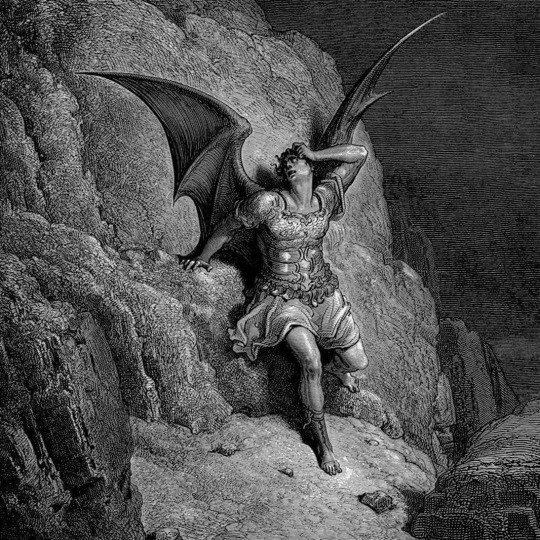

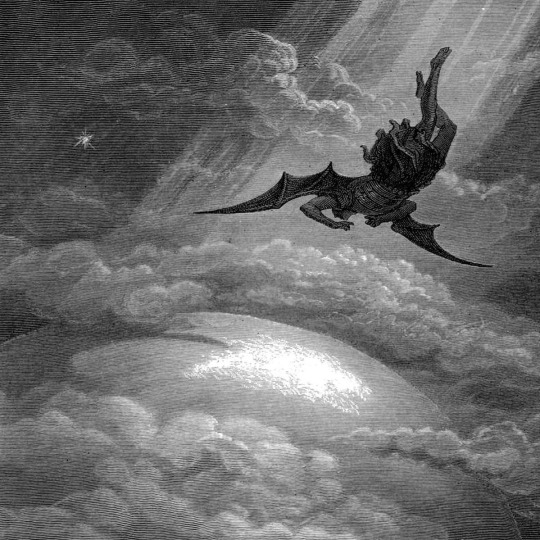
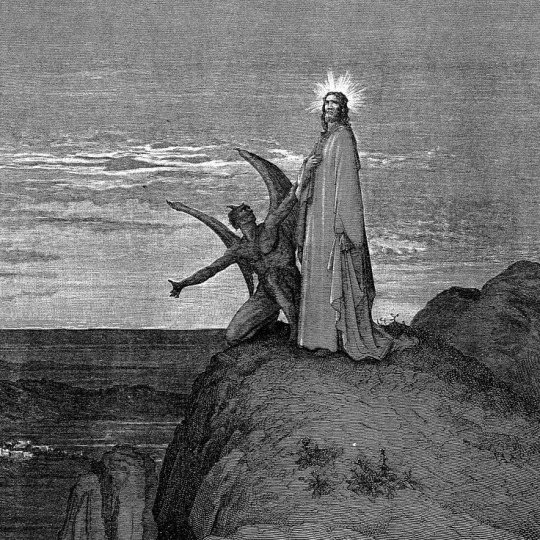

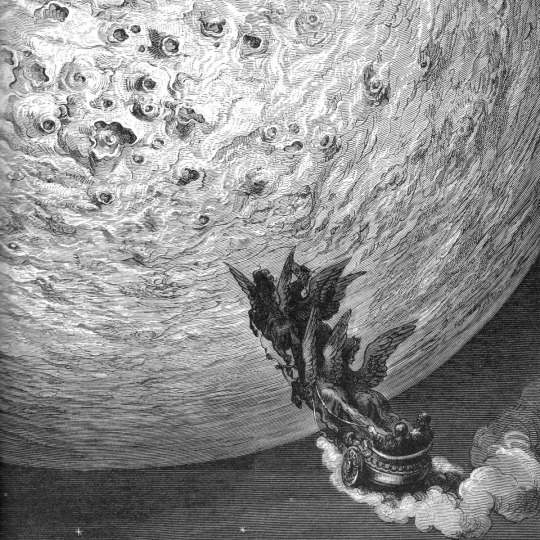

Artists: Gustave Doré (1832 - 1883)
#paradise lost#inferno#dante's inferno#the divine comedy#la commedia divina#the bible#classic literature#classic lit#john milton#genesis#dante alighieri#lucifer morningstar#black and white#art#fine art#french art#gustave doré#dark academia#dark academia aesthetic#angels#religious imagery#heaven and hell#artists#european art#catholic trauma
2K notes
·
View notes